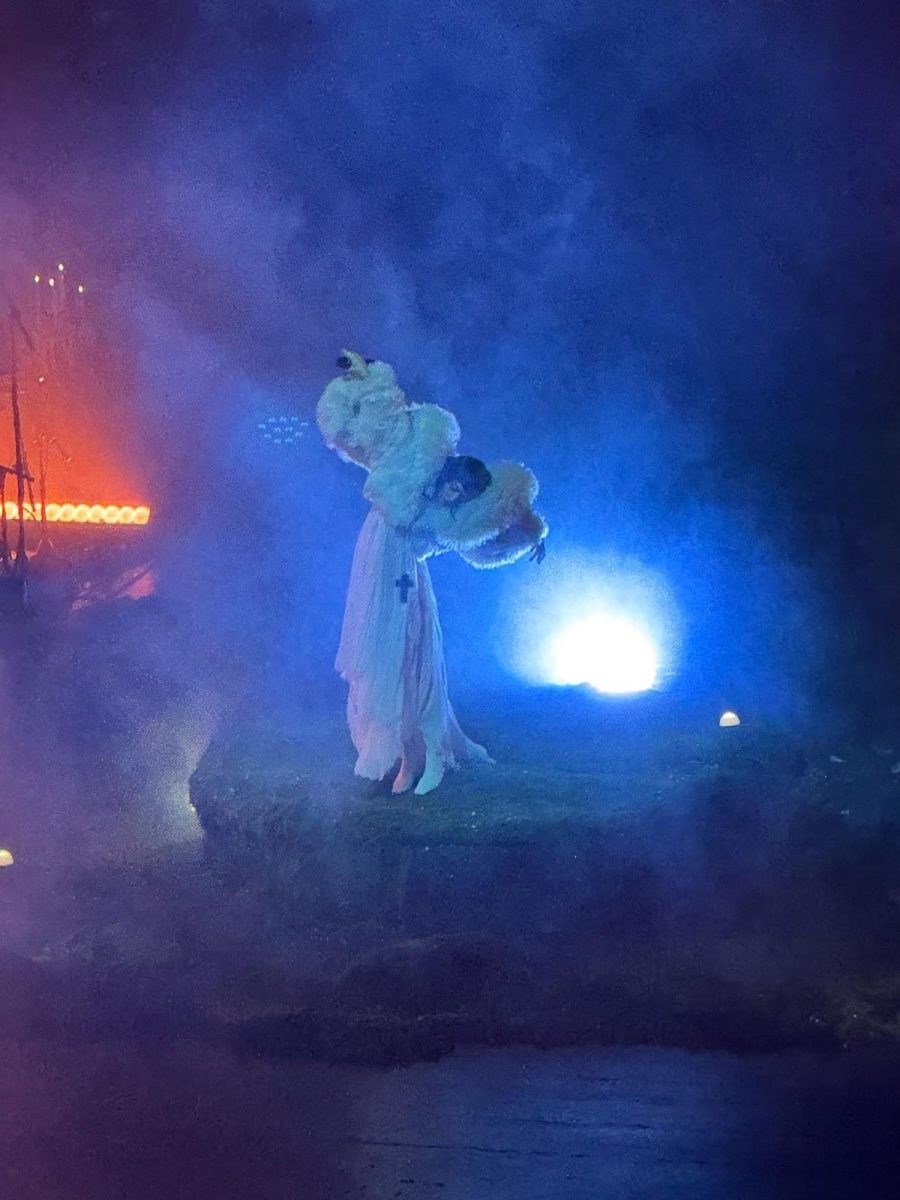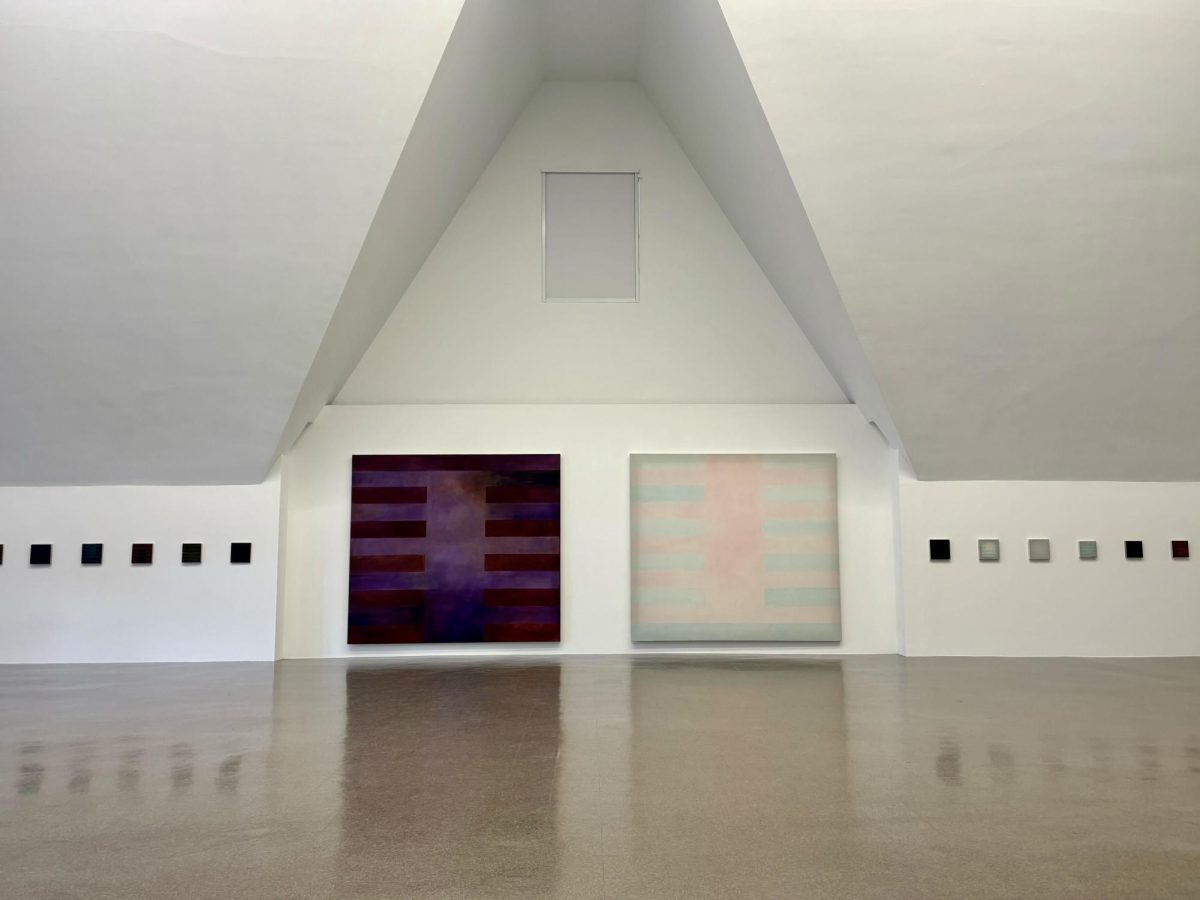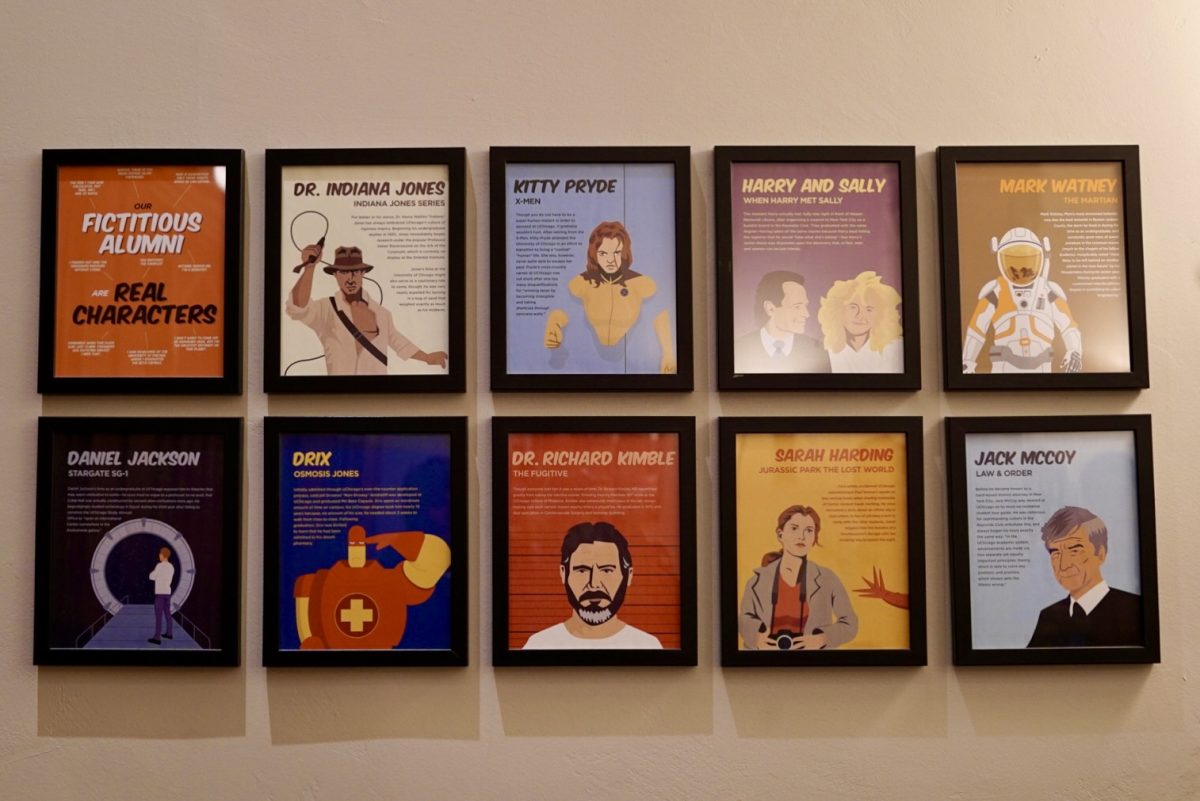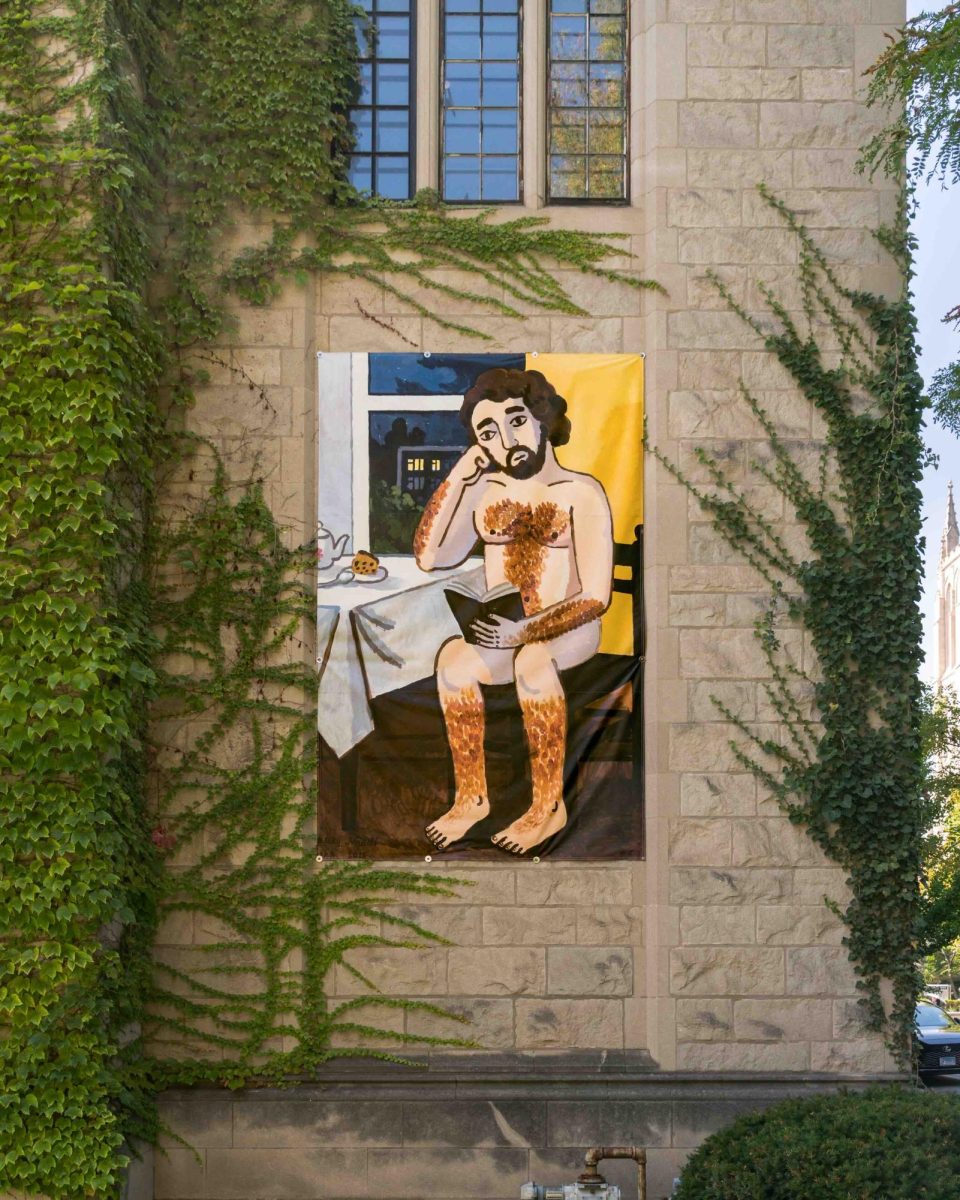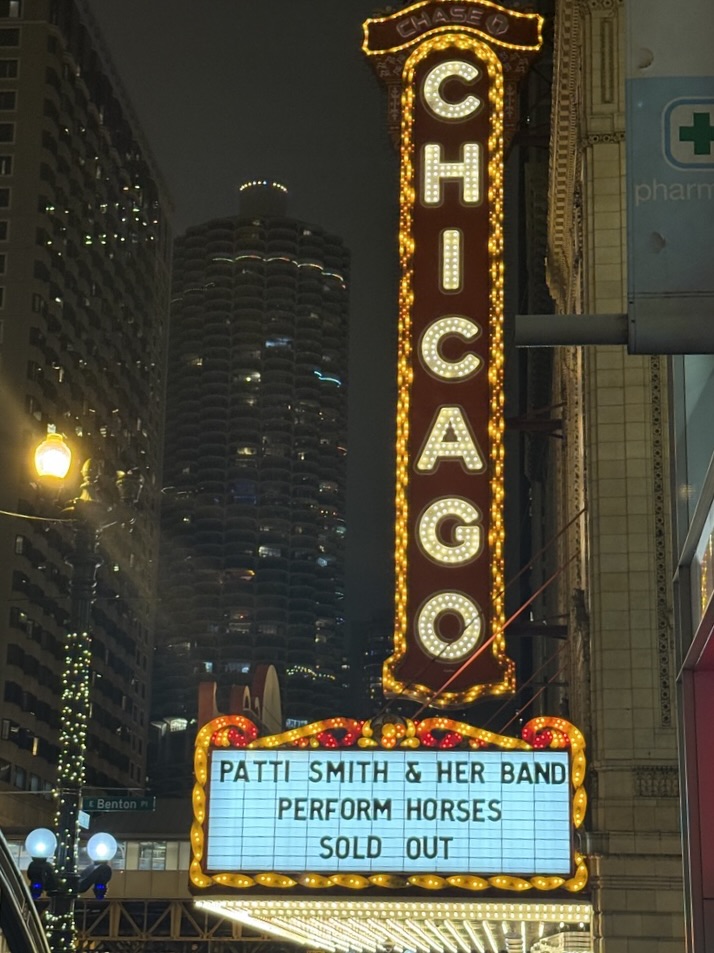As part of the 45th Annual University of Chicago Folk Festival, three concerts of folk music were held in Mandel Hall on Friday, Saturday, and Sunday evenings. Both Friday and Sunday night were composed of three acts, followed by an intermission and two final acts. Saturday’s concert had four performances before the intermission. Every return from intermission commenced with a bagpipe player making a tour of the auditorium.
A word about the audience: Friday night was reasonably well attended, with what looked like—at quick glance—half the seats taken. It’s worth noting, though, that I felt like I was the youngest person in the audience by at least 20 years. Saturday’s show was sold out, with over 900 people packed into Mandel Hall. As might be expected with such a large turnout, the audience was quite diverse, ranging from students to parents with young children to senior citizens. Sunday’s show was not well attended, most likely due to the Super Bowl. It appeared that only 100 or so people were in the audience. However, the audience still seemed younger and more diverse than Friday’s.
All of Friday’s performances were good, though several were particularly memorable. The Ed Poullard Trio began the concert with lively Creole music, complete with pumping accordions and joyful singing. The following act, Geraldine Gay, was wonderful on the piano, while her nephew, Gregory Gay, belted out great songs. My favorite was a wonderful, very slow version of “Amazing Grace.”
Unfortunately, Gay and her group left the stage after only three songs. This was one of my main disappointments with the concert, especially since, unlike other performers, she only played one show. In a luckier turn of events, Etheridge Scott of the Flint River Boys and Chris Sharp of the Old Time Serenaders—who played on Saturday and Sunday—agreed to come out after the Flint River Boys for an impromptu performance. Scott’s solo of his own composition, “Spirit of the Cherokee” (performed while Sharp was offstage fixing a broken string), was a moving guitar piece in which his extraordinary ability was given full flight.
First on stage Saturday night were the Flint River Boys, who played a great set. One enjoyable part of seeing these groups multiple times is that you get to hear more of their repertoire and understand how they vary from night to night. Fiddler Tommy Chapman, who was standing in for regular fiddler Glen Marsh, was much more confident and lively than his first performance with the band the night before. “Sitting on Top of the World” was a new song I found particularly enjoyable, with the three singers weaving beautiful harmonies.
The Chicago Klezmer Ensemble was also very good and provided an interesting counterpart to the predominately American styles of music of the festival. Kurt Bjorling’s clarinet was fantastic, while the rest of the group also delivered solid performances.
Matt Kenman and the Old Time Serenaders came next. Their old-time music was a crowd pleaser, and Kenman delighted the audience when he danced and played the bones on one number. The unique, plaintive sound of his singing was particularly striking.
Dan Gellert, a banjo player and fiddler, opened Sunday’s concert with his only performance of the festival. His banjo playing was particularly impressive; his technical skill was shown by switching between two different banjos and two different fiddles throughout his act. After the intermission, Aaron Moore and the Billy Flynn Band came out for another wonderful performance. Flynn pulled out all the stops and was wailing on his guitar with an incredible piercing style. Sitting in the front row almost made me feel like I was at a rock concert!
The final act of the show and festival was Fred Stoneking and Jim Nelson, who were joined by Chris Sharp of the Old Time Serenaders. Stoneking’s playing was especially energetic and vibrant, perhaps due to the fact that he and the others played standing up. I particularly enjoyed the two waltzes they played, “The South Wind” and, I believe, “Over the Waves.”
The sheer diversity of the acts meant that most people should have been able to come away from the concert having liked something, even those who are not dedicated folk music aficionados. Still, the length of the shows, all over three hours, meant that those interested in only one or two of the acts could easily lose interest. Despite such detriments, I enjoyed the festival a lot and heard many types of music that I otherwise would never have had a chance to hear.




